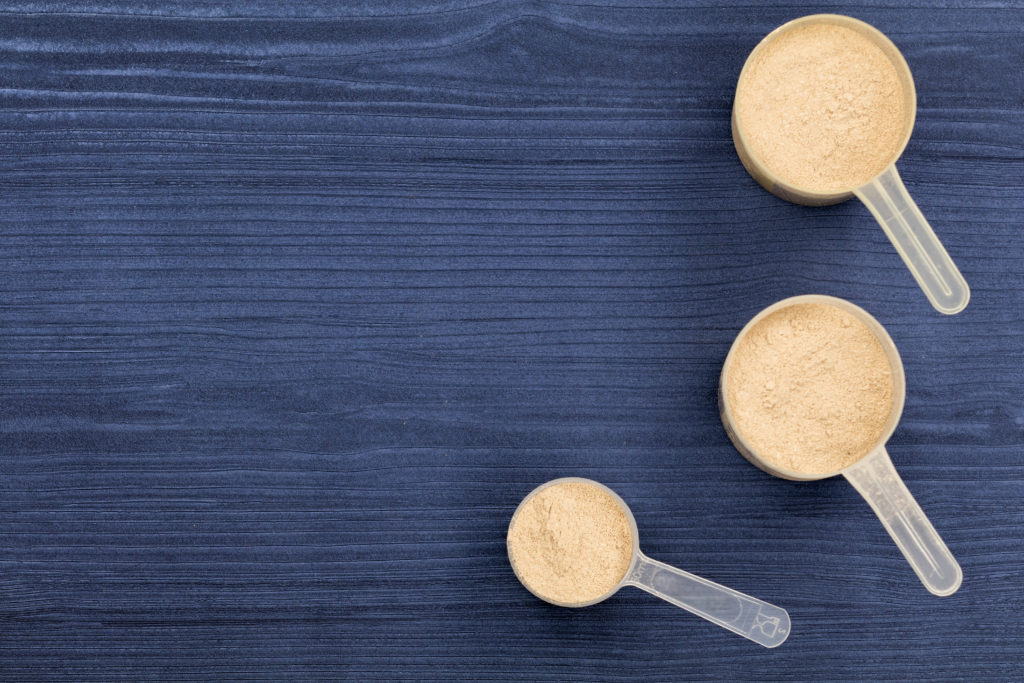is creatine safe?
Creatine is one of the most valid and safest supplements on the market when consumed in recommended dosages. Hundreds of studies have shown the effectiveness of creatine supplementation in improving anaerobic capacity, strength, and lean body mass in conjunction with training but, is creatine safe?
Is Creatine doping?
No it’s not. Creatine supplementation is not on anti-doping agency WADA’s list of banned
drugs.
There is no need to ban creatine supplements since it is readily found in meat and fish and there is no valid test to determine whether athletes are taking it.
Also creatine, like many other dietary supplements, fits well within the confines of The Dietary Supplement Health and Education Act of 1994 (“DSHEA”). This is a statute of United States Federal legislation which defines and regulates dietary supplements by the FDA for GMP.
In addition, the International Society of Sports Nutrition has stated that the use of creatine as a nutritional supplement within established guidelines is safe, effective, and ethical.
Is creatine an anabolic steroid?
Some people wrongly claim that creatine is an anabolic steroid, that it’s unsuitable for women or teenagers, or that it should be used only by professional athletes or bodybuilders, but that’s wrong.
In fact, anabolic steroids are a synthetic version of testosterone, an androgenic hormone which is also produced endogenously within both males and females, and is used together with resistance training with the intent of enhancing muscle mass and strength due to increases in muscle protein synthesis.
While the physiological and performance outcomes of anabolic steroids and creatine can be similar, their mechanisms of action and legal categorization are not.
In conclusion, anabolic steroids are drugs, and have a different chemical structure than phosphocreatine.

Is creatine safe to take every day?
Research has proven that it is safe to consume creatine supplements daily, even over several years. There are no negative side-effects found with the daily, prolonged use.
Of course you can stop supplementing anytime you want, but actual science has shown that there’s no reason to cycle off creatine.
However, if you want to do it anyway, your muscles’ phosphocreatine levels will start to deplete about two weeks after you stop taking it.
In 4-6 weeks, the extra creatine will wash out of your muscles altogether, and your body will be back at producing its baseline level of 1-2 grams a day.
Learn more about creatine intake here.

Does Creatine cause
kidney damage?
Concerns have been raised over creatine supplementation because it can increase creatinine levels beyond the normal range — a marker of kidney damage.
There is an unsubstantiated perspective that if the kidneys are “forced” to excrete higher levels of creatinine, some sort of kidney “overload” will take place, causing kidney damage, bot there is no study that confirms that.
In fact, current research suggests that creatine supplementation does not affect any measure of kidney health apart from creatinine levels.
Moreover, scientific reviews on both the long- and short-term safety of supplemental creatine have consistently found no adverse effects on kidney function
Is creatine safe for
diabetic people?
One of the main concerns with creatine and diabetic people is kidney trouble but, in fact, there isn’t one single peer-reviewed study or case report suggesting creatine as the causative factor behind kidney damage.
Interestingly, creatine has demonstrated significant benefits on glucose control when used alongside exercise, raising its potential as a possible nutritional therapy.
However, since creatine can help improve blood sugar management, if you are using medication known to affect blood sugar, you should discuss creatine use with a doctor.

is creatine safe for seniors?
Yes, creatine is safe for seniors.
One of the most well-known benefits of creatine is its ability to increase muscle mass and speed up muscle growth. This is of particular importance to older adults who experience sarcopenia, which is the age-related decrease of muscle mass. Phosphocreatine may mitigate the indices of sarcopenia.
Also, creatine consumption may even be helpful in other respects, as there is preliminary evidence to indicate that phosphocreatine may be protective against neurocognitive decline and improve brain function in older individuals.
In fact, there are currently research studies going on to further investigate the extent to which creatine supplementation may be beneficial for seniors.

Do I need to worry about
Creatinine concentration?
Creatinine is produced by the breakdown of creatine or phosphocreatine by your muscles.
Both creatine and phosphocreatine are degraded to creatinine, which is exported to the blood and excreted in the urine. As a result of creatine supplementation, the concentration of creatinine in urine may increase.
But this is not a cause for concern because even the higher levels of creatinine are within normal limits and creatinine itself has never been shown to be harmful.
That’s why increased creatinine levels resulting from supplementation with creatine are usually considered safe.
However, if you are taking a creatine supplement and you’re undergoing a renal function test, tell your doctor, as it can bias the results of a creatinine test.

WHERE CAN I GET GOOD QUALITY CREATINE?
There are many types of creatine, but taking a creatine that contains phosphocreatine will, among other benefits, avoid the loading phase.
Clonapure®, for example, is a state-of-the-art sports supplement: it’s more stable than creatine monohydrate, contains phosphocreatine and is manufactured in a GMP site.
That means that every batch with the Clonapure® seal of trust has endured continuous tests (HPLC) along the manufacturing process in order to verify its purity and quality. You can try Clonapure® here.
If you want to learn more about creatine, you can also check this article.







